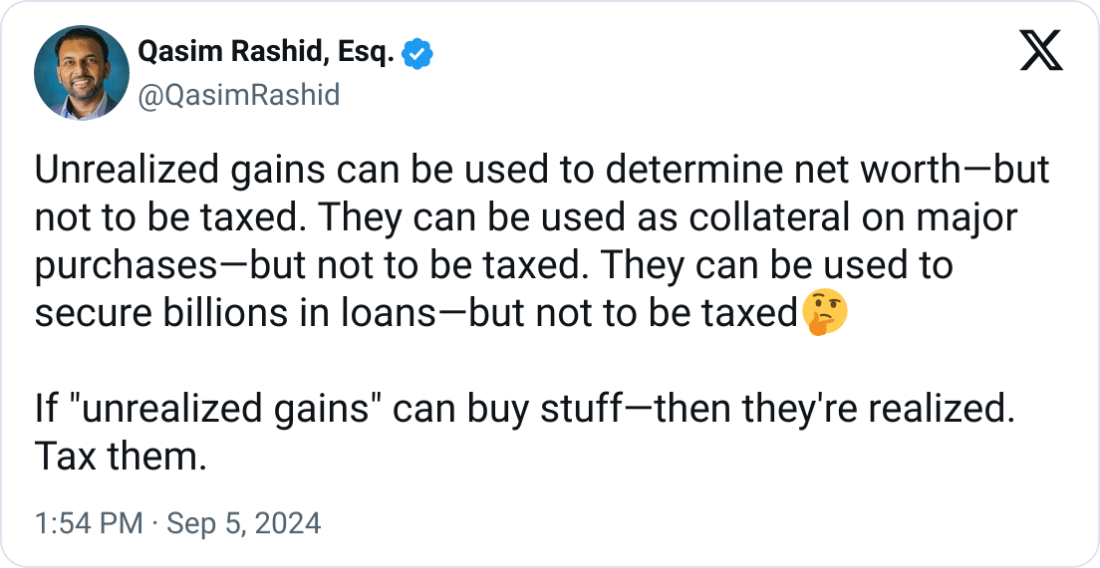this post was submitted on 19 Sep 2024
1598 points (96.8% liked)
Microblog Memes
7608 readers
2456 users here now
A place to share screenshots of Microblog posts, whether from Mastodon, tumblr, ~~Twitter~~ X, KBin, Threads or elsewhere.
Created as an evolution of White People Twitter and other tweet-capture subreddits.
Rules:
- Please put at least one word relevant to the post in the post title.
- Be nice.
- No advertising, brand promotion or guerilla marketing.
- Posters are encouraged to link to the toot or tweet etc in the description of posts.
Related communities:
founded 2 years ago
MODERATORS
you are viewing a single comment's thread
view the rest of the comments
view the rest of the comments

They can be used as collateral because they are assets that have value. You can use your car or house as collateral too, and neither requires payment of federal income tax.
There isn't a federal tax on most assets. It's income that's taxed. If your assets gain value they can be sold, at which point you pay taxes on that income, though often at a reduced rate (e.g. Capital Gains Tax for selling stock at a profit).
Except most state/local governments do have property taxes on houses, land, and cars. Not unrealistic to apply the same towards other assets. Specially since taxing homes and cars is counterintuitive because you're taxing necessities, while taxing monetary/investment assets like stocks would make more sense to encourage more spending instead of just hoarding the money.
Most states don't tax cars outside of sales tax.
They may have registration, but that's different than tax and only applies of you use the vehicle on public land.
Property tax is usually school districts and municipalities, and is well-under 1% most planned.